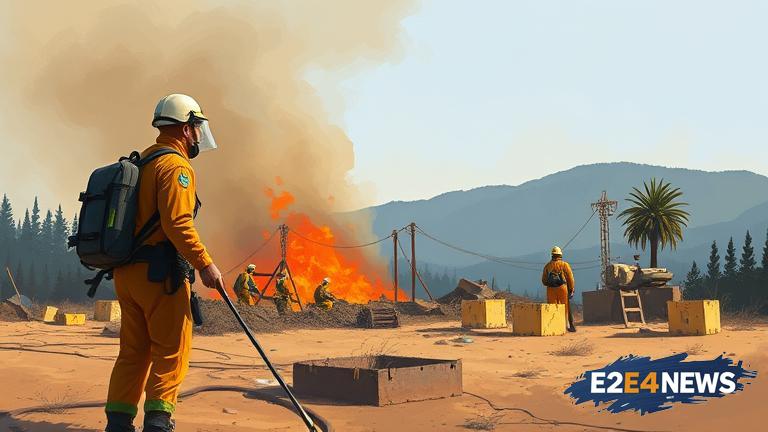Greece has been battling intense wildfires that have spread rapidly across the country, prompting the government to seek help from the European Union. The EU has responded by sending firefighters, aircraft, and equipment to support the Greek authorities in their efforts to contain the blazes. The wildfires have burned thousands of acres of land, forcing evacuations and destroying homes and businesses. The Greek government has declared a state of emergency and has mobilized all available resources to fight the fires. The EU’s assistance is a welcome relief to the Greek authorities, who have been struggling to cope with the scale of the disaster. The European Union has a long history of providing support to member states affected by natural disasters, and its response to the Greek wildfires is a testament to the solidarity and cooperation that exists within the EU. The wildfires in Greece are a reminder of the devastating impact that climate change can have on communities and ecosystems. Rising temperatures and changing weather patterns have created conditions that are ripe for wildfires to spread quickly and unpredictably. The Greek government has pledged to do everything in its power to prevent such disasters from occurring in the future, including implementing measures to reduce the risk of wildfires and improving the country’s emergency response capabilities. The EU’s support for Greece is not limited to firefighting efforts, but also includes financial assistance and expertise to help the country recover from the disaster. The European Union has a range of instruments at its disposal to support member states affected by natural disasters, including the EU Solidarity Fund and the Civil Protection Mechanism. These instruments provide financial and operational support to help countries respond to and recover from disasters. The EU’s response to the Greek wildfires demonstrates the importance of international cooperation and solidarity in the face of natural disasters. The Greek government has expressed its gratitude to the EU for its support, and has pledged to work closely with the EU to prevent and respond to future disasters. The wildfires in Greece have also highlighted the need for greater investment in disaster prevention and preparedness measures. The EU has a range of initiatives and programs aimed at reducing the risk of natural disasters, including the EU’s Disaster Risk Reduction Strategy. This strategy aims to reduce the risk of disasters by promoting sustainable development, improving emergency preparedness and response, and enhancing international cooperation. The Greek government has committed to implementing the EU’s Disaster Risk Reduction Strategy, and to working with the EU to develop a comprehensive approach to disaster risk reduction. The EU’s support for Greece is a reminder that the EU is not just a economic union, but also a community of nations that are committed to working together to address common challenges. The Greek wildfires have also had a significant impact on the country’s economy, with many businesses and industries affected by the disaster. The EU’s financial assistance will help to support the recovery efforts and to mitigate the economic impact of the disaster. The EU’s response to the Greek wildfires is a testament to the EU’s commitment to supporting its member states in times of need. The EU will continue to work closely with the Greek government to support the recovery efforts and to prevent future disasters. The Greek wildfires have also highlighted the importance of climate action and the need for countries to work together to reduce greenhouse gas emissions and to address the impacts of climate change. The EU has a range of initiatives and programs aimed at reducing greenhouse gas emissions and promoting sustainable development, including the EU’s Climate Action Plan. This plan aims to reduce the EU’s greenhouse gas emissions by at least 55% by 2030, and to make the EU carbon neutral by 2050. The Greek government has committed to implementing the EU’s Climate Action Plan, and to working with the EU to develop a comprehensive approach to climate action.
